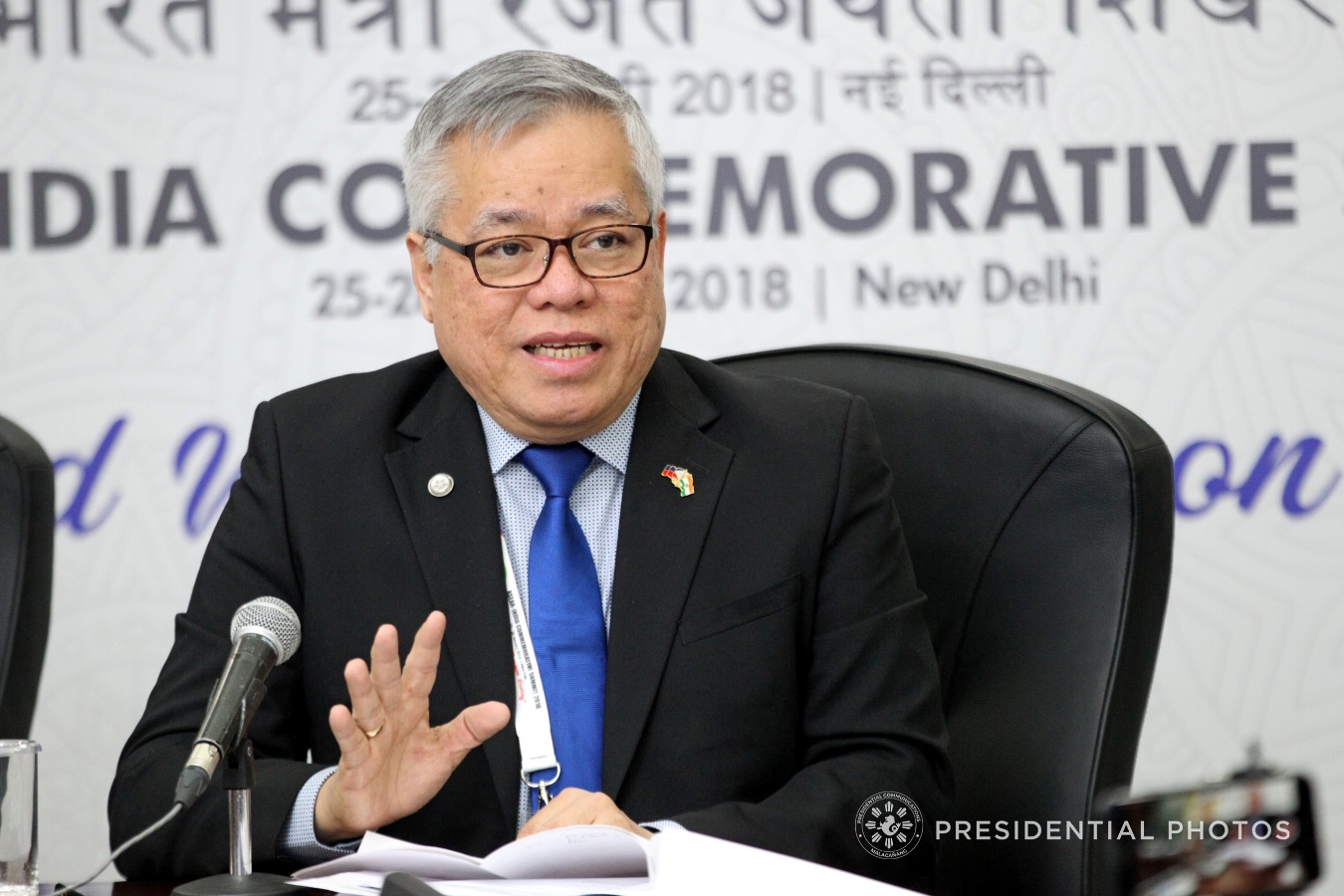
Nonthaburi, THAILAND — Association of Southeast Asian Nations (Asean) trade ministers expect to give a positive report on the proposed Regional Comprehensive Economic Partnership (RCEP) to Asean leaders on Monday despite some issues with one country.
In a briefing Saturday at the sidelines of the 35th Asean Summit and Related Summits being held here and in Bangkok, Trade and Industry Secretary Ramon Lopez said 18 of the 20 chapters of the proposed mega trade deal have been approved as of the trade ministers’ meeting on Friday, November 1.
He said all the text-based rules and cooperation on the proposed 16-country free trade deal registered “substantial progress” and are “almost concluded.”
“We can report a very positive development. There’s really a substantial progress, near conclusion,” he said.
RCEP is a free trade agreement between the 10 ASEAN member-countries and six trading partners namely China, Japan, South Korea, India, Australia and New Zealand.
Once in place this block will account for one-third of the world’s output as it covers some 3.5 billion people.
Lopez said the one country, which he did not name but based on reports is India, has not fully committed to the deal, still has issues on the market access rules.
He said the country has basically agreed to join the deal but it just needs “some kind of confirmation before they can totally agree to the conclusion of all these 20 chapters.”
He said the trade deal is expected to be signed in Vietnam, next year’s Asean host country, in February 2020, with the next three to four-month period to be used for the finishing touches.
Pending the issues raised by the remaining country, Lopez said officials from the 15 other countries expect that all participants will be part of the free trade block.
“The mindset right now is for everyone to be in… We believe that even that one country is working doubly so that they can assess and address all the issues (that are) pending,” he added.
“I think there’s a great probability that everyone will be in,” he said.
In an interview with the Philippine News Agency (PNA), Lopez said Filipino farmers and manufacturers need not worry about the impact of the free trade deal since safeguard measures will be put in place.
For several agricultural products like corn, rice and sugar, the Department of Trade and Industry (DTI) chief said these can maintain their competitiveness because they remain protected.
He explained that competitiveness of Philippine products “will have to come from internal.”
“The government needs to support the competitiveness of our products,” he said.
Part of the measures for this goal is to provide the farming sector quality seeds, equipment, and training to help boost their productivity and lower their cost and to be able to compete fairly with other countries, he said.
Lopez stressed the need to boost productivity in the agriculture sector because there is a large demand for high-value crops from the Philippines like avocado, banana, mango, coffee, cacao and coconut.
Aside from agricultural products, services like engineering, construction, transport, air marine, legal, accounting, auditing and medical as well as other products like electronic paraphernalia will be part of the trade deal.